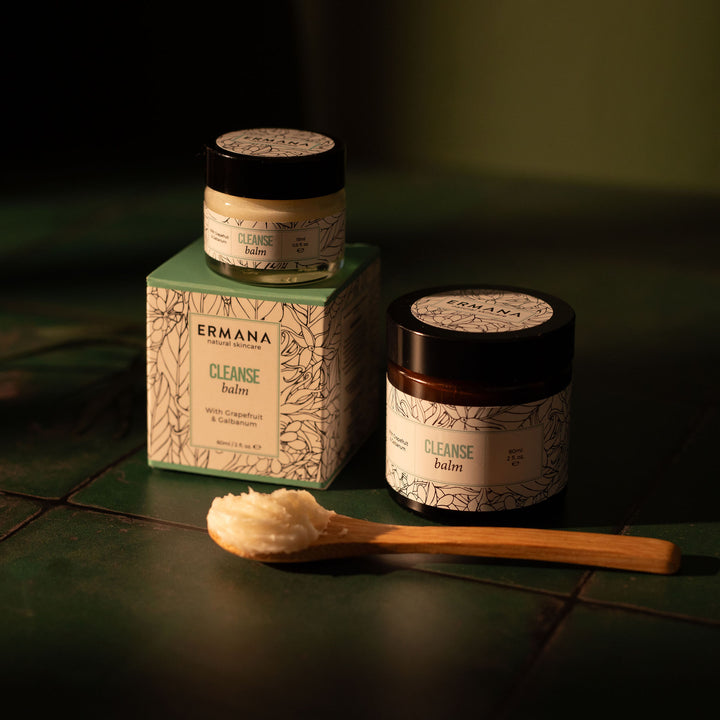
In recent years, there has been a growing awareness of the skin microbiome and its profound impact on skin health. Our skin is not just a protective barrier; it's a complex ecosystem teeming with trillions of microbes that play a crucial role in maintaining skin balance and overall well-being. In this blog post, we'll delve into the significance of the skin microbiome and why choosing natural skincare products can be beneficial for its health.
Understanding the Skin Microbiome
The skin microbiome refers to the diverse community of microorganisms that reside on the skin's surface and in its deeper layers. This includes bacteria, fungi, viruses, and other microbes that form a symbiotic relationship with our skin cells. The microbiome is highly dynamic and influenced by various factors such as genetics, environment, diet, and skincare products.
Why is the skin microbiome important?
- Protection: A healthy microbiome acts as a protective shield against harmful pathogens, toxins, and environmental aggressors. It helps to defend the skin and prevent infections.
- Balance: The microbiome contributes to the skin's pH balance and regulates inflammation. An imbalanced microbiome can lead to skin issues such as acne, eczema, rosacea, and premature ageing.
- Skin Barrier Function: The microbiome plays a role in maintaining the skin barrier, which is essential for retaining moisture, preventing water loss, and keeping the skin hydrated and supple.
The Role of Skincare Products
The products we apply to our skin can have a significant impact on the microbiome. Conventional skincare products often contain harsh chemicals, synthetic fragrances, preservatives, and other ingredients that can disrupt the delicate balance of the microbiome. This disruption can weaken the skin barrier, cause irritation, and contribute to skin problems.
Natural skincare products, on the other hand, are formulated with ingredients derived from nature, such as plant extracts, essential oils, botanicals, and gentle surfactants. These ingredients are less likely to disturb the microbiome and are often rich in nutrients, antioxidants, and anti-inflammatory properties that benefit the skin.
These natural skincare ingredients are generally good for the skin microbiome and we use them all in Ermana products:
1. Jojoba Oil: Jojoba oil is considered beneficial for the skin microbiome. It closely resembles the skin's natural sebum, making it suitable for all skin types. It moisturises without clogging pores and helps maintain a healthy balance.
2. Lavender Oil: Lavender oil has antimicrobial and calming properties, which can be beneficial for the skin. However, it's potent, so it's best used in diluted form to avoid irritation.
3. Coconut Oil: Coconut oil is somewhat controversial for the skin microbiome. While it has moisturising properties, it can also be comedogenic for some people, potentially leading to pore-clogging and exacerbating certain skin conditions.
4. Shea Butter: Shea butter is highly nourishing and moisturising, making it beneficial for the skin microbiome. It helps strengthen the skin barrier and soothe irritation.
5. Cocoa Butter: Similar to shea butter, cocoa butter is rich in antioxidants and emollients, making it good for maintaining skin hydration and supporting a healthy microbiome.
6. Apricot Oil: Apricot oil is lightweight and rich in vitamins, making it suitable for most skin types. It helps moisturise the skin without feeling greasy and can support a balanced microbiome.
7. Macadamia Oil: Macadamia oil is another excellent moisturising ingredient that can benefit the skin microbiome. It's rich in fatty acids and antioxidants, promoting skin health.
8. Sweet Almond Oil: Sweet almond oil is gentle and nourishing, making it a good choice for sensitive skin. It helps lock in moisture and supports the skin barrier.
9. Vitamin E: Vitamin E is an antioxidant that can help protect the skin from oxidative stress and free radicals. It can support overall skin health, including the microbiome.
10. Other Essential Oils:
- Chamomile Oil: Chamomile oil is known for its anti-inflammatory and soothing properties. It can help calm irritated skin, promote healing, and support a balanced microbiome.
- Geranium Oil: Geranium oil is known for its balancing effect on the skin's oil production. It can help regulate sebum production, reduce inflammation, and support a harmonious microbiome.
- Frankincense Oil: Frankincense oil has been used for centuries for its healing properties. It can help improve skin tone, reduce blemishes, and promote overall skin health, contributing to a resilient microbiome.
When using natural skincare ingredients, it's important to consider individual skin sensitivities, allergies, and preferences. Patch testing new products and formulations can help determine their suitability for your skin type. Overall, a balanced approach to skincare, including a variety of beneficial natural ingredients, can contribute to a healthy and thriving skin microbiome.
Benefits of Natural Skincare for the Microbiome
- Gentle Cleansing: Natural cleansers cleanse the skin without stripping away its natural oils, which can help maintain a healthy microbiome.
- Nourishment: Ingredients like aloe vera, green tea extract, honey, and shea butter in natural skincare products provide nourishment and hydration to the skin, supporting its barrier function.
- Anti-inflammatory: Many natural ingredients have anti-inflammatory properties that soothe irritated skin and reduce redness, promoting a balanced microbiome.
- Avoiding Harsh Chemicals: By avoiding harsh chemicals, artificial fragrances, and preservatives, natural skincare products reduce the risk of microbiome disruption and sensitivity reactions.
In conclusion, nurturing your skin's microbiome is key to achieving healthy, radiant skin. Choosing natural skincare products that are gentle, nourishing, and free from harmful ingredients can help support a balanced microbiome and promote overall skin wellness. Remember to read labels, understand ingredients, and prioritise products that work in harmony with your skin's natural ecosystem. Your skin will thank you for it!

